Kitchen Hygiene and Grocery Shopping Tips During the COVID-19 Pandemic

Hygiene through the COVID-19 lenses
As the world ushered in 2020 with a lot of pomp and color, it did not anticipate the disruption that the new Coronavirus Disease (COVID-19) was going to cause throughout the world.
Since the pandemic was first diagnosed in late December 2019 and in early January 2020 and started spreading around the world, our approach to life has been altered radically.
Safety is crucial for as long as the pandemic persists and for good reason. People globally are taking health guidelines and precautionary protocol to prevent contracting and spreading the COVID–19.
These measures include finding ways to boost our immune system, washing hands the right way and regularly, regular use of hand sanitizers especially when we are not in a position to wash our hands such as during travel.
Other crucial measures include social distancing, appropriate use of face masks and practicing safety measures during or after shopping or whenever items are delivered to our homes or places of work.
As COVID-19 spreads, carrying out what used to be simple daily errands will cause almost crippling nervousness for a lot of people. Previously routine and simple tasks like shopping for groceries and other food stuff are no longer simple.
They now require advance planning, thinking through the required safety protocol and ensuring you are armed with the right and required items.
The minimum required items for simple errands like food shopping in this season are different; it does not mean carrying only money and your shopping bags, but also ensuring you are armed with a mask and hand sanitizer.
Indeed, now that most countries have ordered people to stay indoors to try and flatten the curve, most people are more and more (and justly) afraid of leaving their houses.
While these methods are crucial for the safety and health of each family, one of the largest hindrances for people in voluntary quarantine has been thinking about how to feed themselves and their loved ones.
Some people have chosen services that deliver groceries as a safety precaution instead of mingling with crowds (not forgetting scarcity) in grocery stores.
Those at a higher risk of becoming gravely sick from COVID-19, which includes senior citizens or people with autoimmune problems or other chronic health issues, need to remain especially careful when leaving their houses. For these people, it might be wise to skip the grocery store completely and opt for online shopping.
While some people have managed to stay indoors, some may not be able to do mostly because their line of work is classified as essential service and so they have to leave the house for work.
For some, staying indoors risks their livelihood and they thus feel it is a choice between starvation or taking a risk to catch the virus.
Whatever your reasons for leaving the house during this season, the most important thing is to ensure that you take the requisite safety precautions. In any event, the world cannot stay indoors for eternity.
It is important to note that as long as you have contact with people or surfaces, there is a risk that you might come into contact with the virus and even bring it home.
Even the cleanest of houses might harbor unwanted germs that can spread potential diseases and make you sick especially if you your hygiene and safety protocol has loopholes.
So, what can you do to stop harmful germs from spreading, stop bad bacteria build-up, and ensure the family stays healthy during the COVID-19 pandemic and beyond?
Extra hygiene measures at home
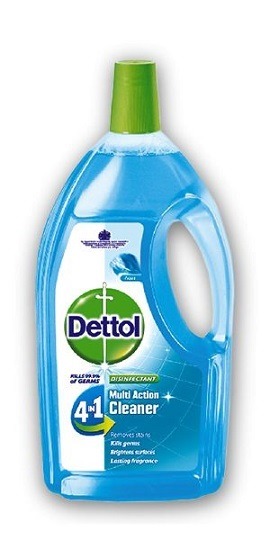
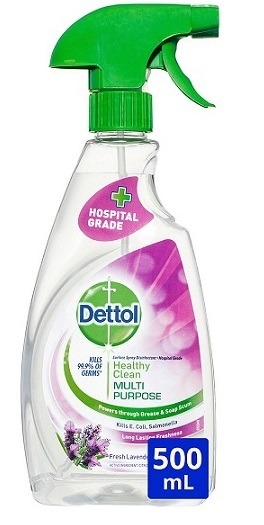
You do not have to deal with the whole house immediately; however, there are specific areas that need a bit more attention when it comes to house hygiene.
Whether you’re in lockdown, self-isolation, or shielding, you will be spending much more time in the house over the coming months.
However, there are many things you can do to ensure that you retain or even improve wellness of both body and mind even with the restricted movement.
One of the things that can help you to remain in a good state of mind is to be active, not only by exercising but by engaging in household chores such as cleaning.
And since this season calls for extra vigilance on matters hygiene, then you will not be short of motivation to clean.
People need to stop by the grocery store, or any place outdoors, only if they feel reasonably confident and well that they haven’t been exposed to Corona Virus.
Remember that even as you maintain all safety measures against COVID-19 both when outdoors and indoors, you still need to look out for symptoms in yourself and other family members.
The symptoms might include, but are not limited to, mild to severe respiratory ailments with breathing difficulties, as well as a cough and fever.
If you’re worried that you might have been exposed to COVID-19, the first step is to self-quarantine to ensure you do not expose others to the virus.
Keep in mind the period of incubation is from 2 to 14 days. This is the reason why you should stay away from crowded areas. You or even people around you might be infected but don’t know yet due to this incubation period.
Ensure that you call the relevant hotlines so that you can be advised on where to report for testing and treatment should you end up testing positive for the virus. The sooner you get the right medical assistance the better.
Please do not be selfish by hiding the fact that you might be infected out of fear that your freedom will be curtailed.
Remember that exposing people with underlying conditions to the virus might have far reaching effects on them, including death.
No human being in their right mind would want to carry the burden of knowing that their careless or selfish conduct risked or cost someone their life.
Do the right thing! 14 days of quarantine is not a long time and can provide you with much needed peace and quiet to rest, think, plan, re-strategize your life while receiving much needed treatment.
Take note that this article errs on the side of more, because we believe we are better off safe than sorry and that prevention is better than cure. In the future, we might find some of these extra hygiene measures are unnecessary, but in these early stages of this pandemic, extra precaution may be what we need.
With that useful background information, let us now delve into how to keep your kitchen extra clean during this unprecedented season.
Hand washing and sanitizing in your kitchen
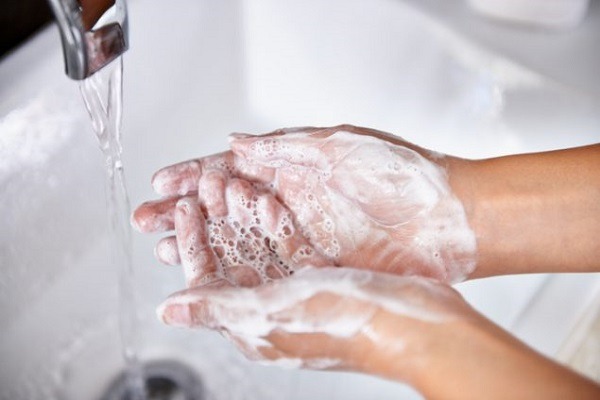
The first step is to avail hand washing soap and water or an effective sanitizer (meaning it has an alcohol content of more than 70% alcohol) near the kitchen entrance.
Also, have hand sanitizers in other strategic areas within your house and kitchen such as at the dining table. Start by washing your hands regularly with soap and water and/or using hand sanitizers whenever you enter your kitchen.
Note that if you cannot access hand sanitizers due to scarcity or cost, washing your hands with warm soapy water before you enter your kitchen or before any food handling is sufficient.
Use of automatic soap and sanitizer dispensers is a recommended practice. The reason being, you avoid touching the dispensing machine thus reducing the risk of spreading the virus through hand contact of the dispenser.
For hand drying, using a disposable kitchen tissue may be better than a hand towel that’s used regularly by many people, to avoid spreading the virus.
The kitchen

This is an area that’s usually considered the focal point of the house, and this is also definitely the case when it comes to the risk of spreading germs. The kitchen has potential to carry more pathogens than any other room in most homes.
For that reason, you need to consider the following home clean up tips to up the hygiene in your kitchen and keep your loved ones protected from coronavirus.
- You should practice good kitchen hygiene by washing hands frequently with soap and running water.
- Your kitchen sink often gets into contact with many potentially hazardous germs, COVID-19 being so far one of the most dangerous ones. The reason being, most food items such as fruits and vegetables from the grocery stores end up on your sink, thus exposing your sink to the risk of contamination. You should make sure that you disinfect the tap, sink, and surrounding surfaces frequently to stop the spread of the coronavirus and other germs.
- It is also important that you disinfect the garbage bin both inside and outside frequently, and don’t forget to wash your hands after this activity.
- Chopping boards, worktops, and any other surfaces you use for preparing food might easily get contaminated with COVID-19 brought into your kitchen by things from outside. Ensure that you disinfect the areas you use to prepare food later on with a disposable disinfectant wipe, disinfectant cleaner, or a clean cloth.
- Damp cloths and sponges harbor microbes, acting as a breeding ground for germs if you don’t clean and store them in the right way. You do not want to be using a dirty sponge for cleaning plates or a dirty contaminated cloth to wipe your dishes and surfaces thus spreading COVID-19 onto the worktop and other kitchen surfaces. For this reason, you should sanitize the kitchen cloth or sponge after use. You should also change them frequently during this COVID-19 pandemic.
What is the proper way of washing hands to prevent getting COVID-19?
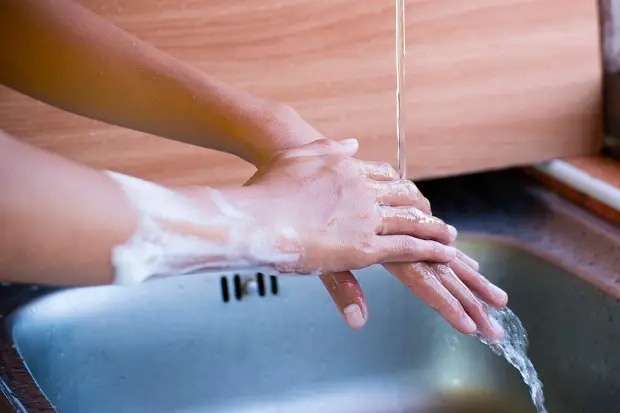
One of the simplest and most recommended approach to keeping COVID-19 at bay is to regularly wash your hands and to do so in the right way. Washing of hands is encouraged wherever you may be, whether at work or at home.
Ensure you follow the following tips to wash your hands whether before you engage in your kitchen tasks or wherever else you may be:
- You should use clean, running water to wash your hands. If you do not have running water from a tap, you can improvise by pouring water from a jerrican or jug.
- Wet the hands before you apply a sufficient amount of soap.
- For at least 20seconds, rub the soapy hands together. Wash all the surfaces of your hands properly. This will include between fingers, tips of your finders, palms, wrist, and back of hands. You can watch the various videos available online on the recommended ways of washing hands, including the one done by the Secretary General of the WHO on the safe hands challenge on how to clean your hands.
- Get rid of any dirt from and clean up under the fingernails. Keeping short nails or ensuring your long nails are always clean and do not harbor dirt or any residue will reduce the risk of contamination.
- You should rinse hands thoroughly to get rid of all the soap.
- Make sure you use a clean paper towel or an air dryer to dry your hands.
- If you don’t have water and soap, you can clean your hands using an alcohol-based hand sanitizer. When you use this kind of product:
- Apply the gel in the palm of one of your hands.
- Rub the hands together.
- You should rub the alcohol-based product over all the fingers and hands until they are dry.
How often should you wash your hands to keep the COVID-19 at bay?
You should wash hands regularly. This means more often than you did before the virus struck. Disease causing germs can be anywhere, so you should especially wash the hands regularly:
- When someone around you is sick
- After you handle trash
- Before you handle food preparation or before eating anything
- After sneezing, coughing, or blowing your nose
- When your hands are dirty
- After you use the bathroom
- Before food preparation
- Every time you get into the house after coming from outside
The difference between disinfecting and cleaning
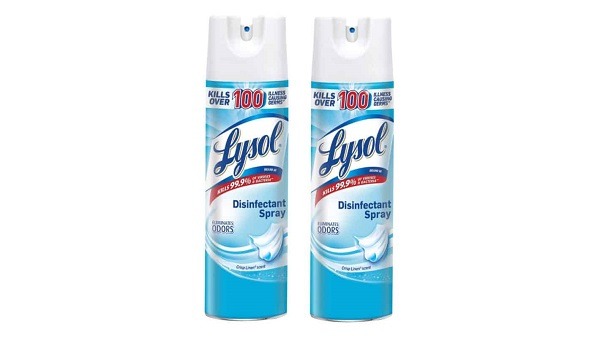
Disinfection means killing germs on the surfaces using chemicals. Cleaning means manually getting rid of organic matter like dirt and germs from surfaces in your kitchen.
Clean up is essential, as germs might inhibit or decrease the ability of the disinfectant to kill germs.
Hands are usually the most common medium of transferring germs from one area to another.
So, if your hands have come into contact with the COVID-19 virus and you have not washed or sanitized them, you risk spreading the COVID-19 virus on anything that you will subsequently come into contact with.
This means items you regularly use within your kitchen and house are at an increased risk of getting contaminated with the COVID-19 virus.
Here’s important information when disinfecting or cleaning
It may seem overwhelming to maintain hygienic and clean household surroundings especially noting the need to do extra, such as disinfecting in addition to your usual cleaning, during and after the COVID-19 pandemic.
However, a couple of minimal additions to your usual home clean up regime will make a huge difference when it comes to protecting your loved ones from COVID-19.
The kitchen and bathroom are the two most essential house areas to clean up and disinfect.
In the kitchen, bacteria or viruses from food or other items brought from outside can contaminate the food preparation areas and surfaces. Without the right cleaning, this can spread diseases such as COVID-19.
Follow the following basic tips when disinfecting or cleaning:
- Make sure you wash your hands properly before you start cleaning and disinfecting. After you wear gloves, ensure you wash the gloves before you start cleaning.
- You should use a paper towel for wiping the surfaces dry and dispose of the paper towel. If you choose to use a cloth towel, ensure that it is cleaned afterwards and that it is not used by many people for several days.
- Make sure you clean the surfaces using a disinfectant. Leave it on for a couple of minutes, based on the directions of the manufacturer, before wiping it off.
Steps to follow after food and grocery shopping
Even in self-quarantine, self-isolation and with social distancing, eating is a must. However, since we are all trying to protect ourselves, family and community from COVID-19, it is good to limit trips to the grocery store to as few as you can.
To start with, do not stop by the grocery store if you are feeling ill. If you are feeling unwell, remain at home once you get home.
Call the recommended phone numbers if you suspect you could be exposed to the virus so that you can be advised on what to do.
If you’re self-isolating, request a loved one or friend to deliver groceries to your house.
The best option for shopping available at this time is ordering groceries and food online. Having the food delivered to your home significantly minimizes your contact with others.
Think about ordering these items for family members who are at risk of getting COVID-19 or even succumbing to the virus such as the elderly and those with underlying health conditions.
One advantage of ordering via an app or online is that you do not need to hand over money to the delivery person.
Transfer of hard cash is one of the easiest ways to transfer the virus. Online purchases allow you to make payments online using your card or mobile cash transfers.
If you cannot get things delivered to your doorstep, you can try to shop at off-peak hours.
Make sure you purchase as many things as possible from one store instead of visiting many stores and purchase enough to last you 1-2 weeks to reduce the need for regular visits to the store.
If you must visit the grocery store, adhere to these steps to ensure you and others stay safe.
Before leaving for the grocery store:
- If you want to bring your bags to the store, you can use reusable types that you’ve washed with hot water and soap. If you do not have these types of bags that you can toss in your washing machine, choose the disposable paper or plastic bags at the store.
- If possible, visit the store alone. Leave the kids and other loved ones in the house.
- If you reside in an apartment complex, it is may be difficult to make sure that the area in the hallway is well cleaned and disinfected to keep COVID-19 at bay. Find a strategy, alone or with your neighbours to ensure you regularly clean and sanitize the hallway and door handles. Nevertheless, apply precaution by sanitizing your hands whenever you touch the door handles of the common areas within your apartment complex.
- You should make a plan of action assuming you will not return to the store for a few weeks. Since you will probably get COVID-19 from people or contaminated surfaces outside, the best thing you should do to reduce your exposure to coronavirus is to avoid the store or limit your visits. Create a list of recipes that depend on staples that last longer, create space in your freezer, and make time for planning your meals.
- Make sure you designate a house sanitation station. That can be the kitchen counter, porch, garage, or apartment hallway. Choose where you can place sanitized things and where to place things you haven’t treated. If you want, you can use painter’s tape for marking off these zones to prevent COVID-19 cross-contamination.
Before you arrive at the store:
- If you have them with you, bring the wipes and hand sanitizer.
- You should prepare a list to use when shopping to ensure you do not forget anything which might force you to visit the store sooner than planned.
- Purchase just one to two weeks’ worth of groceries at a time. Purchasing more than you require will create temporary shortages and needless demand.
While in the store:
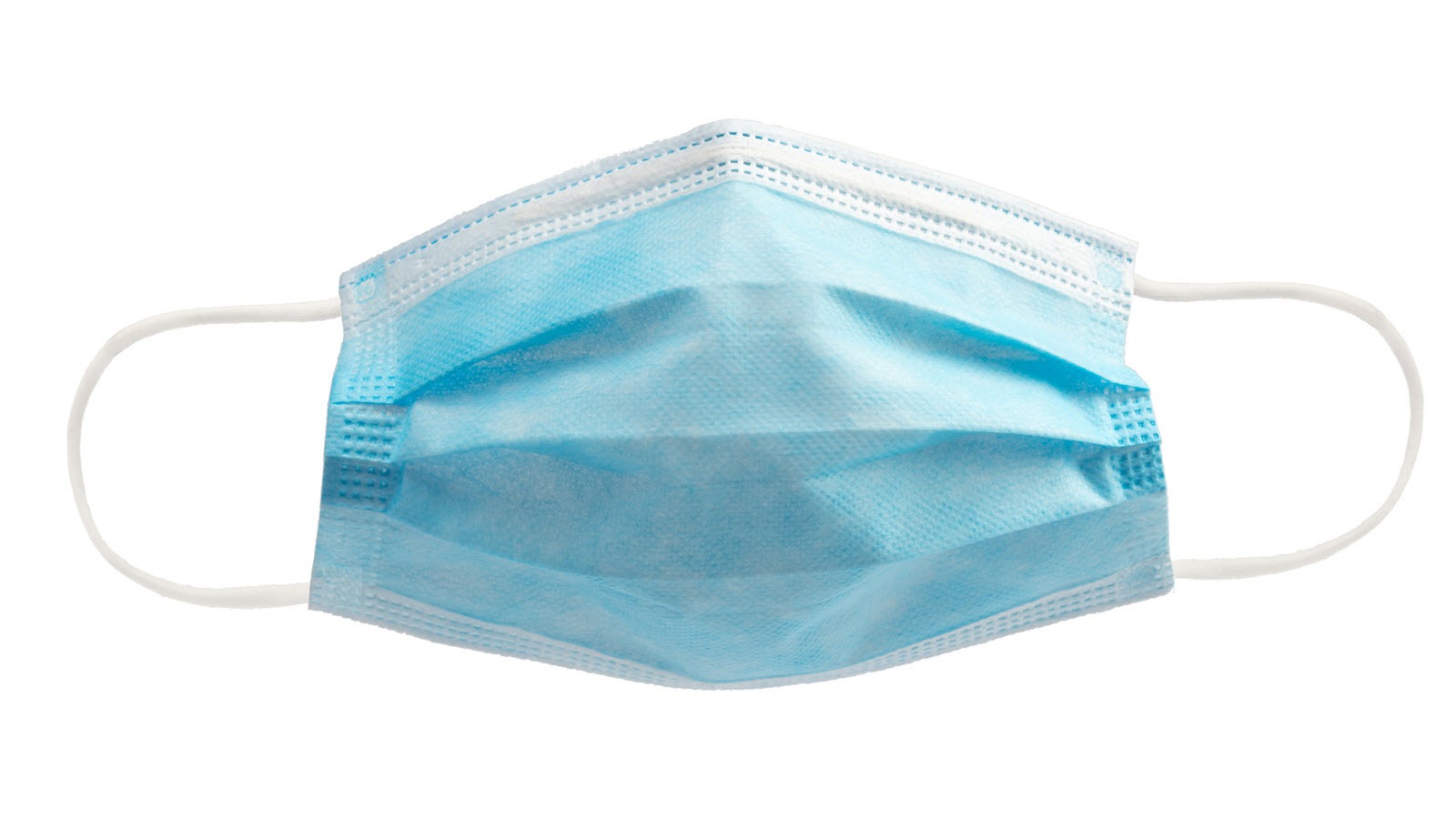
- Make sure you use the hand sanitizers provided by most shopping stores or use your own if none are provided. Also, ensure you wear a mask and allow your temperature to be checked if this option is available the store.
- Do not be agitated by the extra safety precautions that are applied in most stores or be a “coronavirus jerk” by being rude to the store attendants who require you to adhere to the simple safety measures.
- Remember to keep social distance. Find stores that set limits on the number of shoppers who can enter at any one time to ensure social distancing. When moving from one corner of the store to another, you should always try to practice social distancing.
- Adhere to store rules. Stores handle social distancing differently. Some have designated one-way aisles, while others put stickers on the floor. Observe the rules that your local store is using to address the COVID-19 pandemic.
- Never store your grocery list on your phone; while you shop, try keeping your hands off your personal items to prevent the spread of COVID-19.
- At the store, you should only touch things you are planning to buy. As much as possible, limit the need to touch items while putting them back.
- If the store does not sanitize the grocery carts, you should use wipes and your own sanitizer for cleaning the grocery cart (particularly the handle). If you do not have wipes, be careful of your hands.
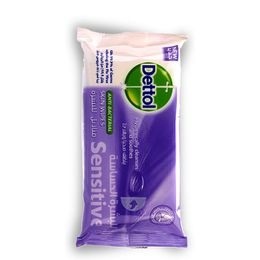
- Never touch your face and mouth after you touch surfaces which may be contaminated. The reason being, this is a way of contracting a virus such as COVID-19. Additionally, touching the face before you touch things in the store means you might be shedding viral cells for other people to collect.
- It is unnecessary to put on gloves to the store as the gloves can get contaminated with coronavirus the same way as hands. What you should do is to wash and sanitize your hands before and after you enter the store. However, if you prefer wearing gloves, you should use the disposable types. Ensure you throw away the disposable gloves before entering your car, if you are driving, or the moment you get home if you taking public transportation or on foot. Ensure you wash or sanitize your hands after taking off the gloves as there is a risk that your hands touched the contaminated gloves while taking them off.
During checkout:
- Keep practicing social distancing; make sure you keep distance from other shoppers. You can self-checkout if you can since many stores are designating employees to wipe down stations after every shopper.
- If you use a card to pay, wipe it before and after using it. Wash your hands after using cash or even if you are in touch with the payment terminal or PDQ machine.
- Use a cashless option for payment, either with your debit or credit card or mobile money payment options or other cashless options that may be available in your country.
Exiting the store:
- Washing hands as soon as you can or use hand sanitizer if you do not have access to clean water and soap.
- You can use hand sanitizer before you get in the car, touching the steering wheel or personal items.
- Ensure that you do not touch your face even on hot day.
- If you need to pay parking at a parking pay station, sanitize your hands and the parking coin or card for the safety of subsequent users.
Is food packaging safe?
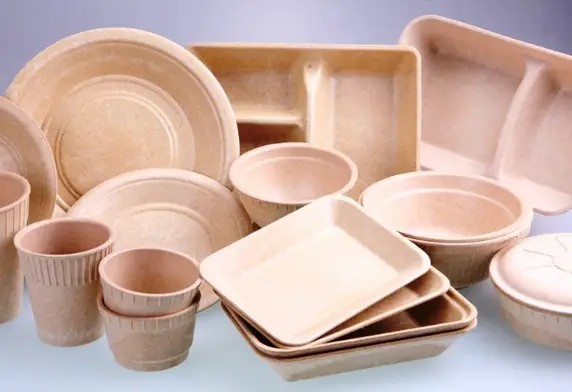
As for risks associated with food packaging, there have been no COVID-19 contamination cases from containers so far.
Experts state the risk needs consideration in theory and safety measures have to be taken. But they add that provided that you ensure that you clean your hands after each time you touch packaging, you will not require extra precautions.
When bringing food into the house, make sure you wash your hands for at least twenty (20) seconds before and after you unpack the groceries.
When you finish unpacking the groceries, you can clean the packaging materials properly. Once you unpack, you can recycle or dispose of the packaging material. It’s also important that you clean and disinfect all surfaces where you placed the packaging.
If you’re still concerned about becoming infected with COVID-19 from the packaging, you can go a step further and disinfect the packaging before unpacking.
Also, wash your hands well after touching the packaging and ensure you keep your hands away from your face.
Washing your hands before and after each step of work is enough to protect you from contamination.
Steps to follow when you get home after food and grocery shopping
- Once you get back home from grocery and foodstuff shopping, start by washing your hands.
- Next sanitize / or use a cloth with warm soapy water and wipe off the external part of your grocery bags with the shopping items or groceries still inside. You should leave the grocery bags outside first but if not possible, leave them next to your door on the inside.
- Coronavirus attaches itself to all surfaces including on paper and fabric. The length of its survival varies depending on the nature of the surface. These measures on cleaning your grocery bags are to ensure any viruses on your shopping bags are wiped off.
- Take off any protective items and dispose of any protective gear you may be wearing such as face mask or gloves and dispose of them in a bag then into your dust bin.
- Handling your shoes and clothes after exposure:
- Handling shoes: after you get home from the grocery store, removing shoes is very important. Research suggests that droplets having COVID – 19 that may be lingering in the air may fall to the ground, where you can pick them by feet. While the studies on the virus testing positive on shoes were done in a hospital setting, it is still better to take precaution. If you have children, they might crawl on the ground while playing, so you do not want to track the COVID – 19 particles into your house. Ensure that you wash your hands thoroughly with soap and water after handling your shoes.
- Handling clothes: Remove your clothes and throw them into your washing machine or in a bin for dirty clothes. It is also advisable to take a shower and change into clean safe clothes, depending of course on your level of exposure to other people. Even though it is reported that you may not need to change your clothes every time you go out or take a shower unless your level of exposure with people was very high, doing this is an extra precaution. If you were unable to maintain social distancing or someone sneezed or coughed near you, it is recommended that you take these extra precautions once you get home.
- Disinfect all nonporous containers. This means disinfecting food packaging like bottles, cans and jars made of different materials such as plastic, metal, glass, etc.
- You can create a solution of diluted chlorine bleach or you use daily disinfectant wipes. Wipe the containers using the solution you’ve made and dry it off after it sits for a minute on the surface.
- The food safety guidelines when it comes to consuming fresh veggies and fruits have not changed: Simply run these under your faucet and rub of any dirt or soil with clean hands.
- After you have stored all the groceries, make sure you disinfect all surfaces your bags may have come into contact with, especially your counter tops and sink, as an extra precaution to keep COVID-19 at bay. Usually, it’s important to clean surfaces after any type of use.
Wash and/or sanitize your shopping bags and food items one by one
As shopping for groceries remains important, most people have questions on how to shop for commodities safely.
Experts, and in particular the Food and Drug Administration say that there’s at present no proof of food packaging or animal or human food being linked to COVID-19 transmission.
However, research work reported by health websites like healthline confirms that the COVID-19 virus can survive on different types of surfaces for different periods of time.
So, depending on the type of material that your packaging is made of, then the virus could remain on it and there could be a risk of contracting the virus if you touch a contaminated surface then come into contact with your mouth, nose or eye membranes.
This specific disease causes respiratory ailment and is spread from one individual to another, unlike other foodborne viruses like hepatitis A and norovirus, which usually make people sick through food that’s contaminated.
During this epidemic, shoppers are buying many of their foodstuffs from grocery stores, and most outlets have modified their hours of operation to permit more time to restock shelves and clean.
Unpacking: now that you are clean, start taking your shopping items from the already sanitized shopping bags one by one.
Wipe off all your shopping items one by one with a cloth dipped in warm soapy water or sanitizer or food-friendly disinfectant such as vinegar. Since you are only wiping the exterior parts of the packaging, the disinfectant will not get to your food.
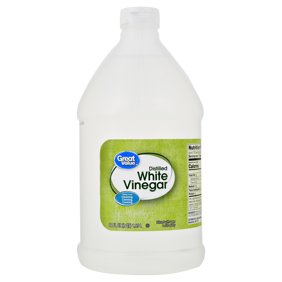
Wash all groceries in clean water and vinegar or with a vegetable liquid wash.
Once you are done wiping off your shopping or washing the groceries, you can safely pack them away into your fridge or pantry.
Revisit your empty shopping bags by washing them in water, or sanitizing them thoroughly inside and outside.
If they are the disposable kind, ensure you dispose of them well in your external dustbin to avoid contact with them as you throw other trash into your kitchen bin. You can put them out to dry especially if you live in a country where the sun is out.
You should wash the countertop, hands, and any other surfaces you’ve come into contact with or that have been in contact with the shopping bags or groceries. Make sure you do this after putting away the groceries.
You should remember that you don’t have to always use a disinfectant to clean the surfaces unless you are living with a person who has symptoms of respiratory ailments or has already been exposed to the virus.
However, we stated at the onset that during this unusual season of the COVID-19 pandemic, we are taking extra caution. So, there is no harm in disinfecting your surfaces more often than you did before the pandemic struck.
Containers
You should throw away all unnecessary external packaging.
For bagged groceries, if two individuals are on hand, one individual can open the fridge’s crisper and the other person dump the veggies, throwing away the bag. You can use sterile storage containers to put the bread.
Research as cited above shows that coronavirus will survive on various surfaces for different amounts of time.
The COVID-19 virus will probably live on cardboard for a day; however, on the interior side of the packaging, it is unlikely that hands have come into contact with that surface for more than a couple of days.
If you want to purchase groceries for somebody else, think about taking out the groceries from their outer containers and using a cloth bag to store them.
Wash and Wipe the surfaces and your fridge
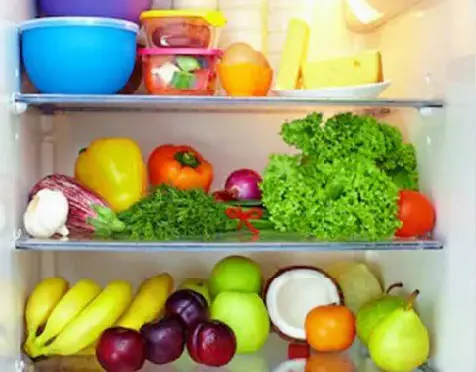
Ensure that you wipe the kitchen tabletops and surfaces daily with warm soapy water and a disinfectant. This is very important if you had placed your shopping on these surfaces while unpacking.
There seems to be conflicting information on whether or how long the COVID-19 virus can survive in your fridge or freezer. Some of the sources indicate that the low temperatures in your fridge are ideal for the virus.
Some of the sources of information on the COVID-19 virus, based on research on the related virus called SARs, indicate that some coronaviruses can stay alive in the fridge for up to 28 days.
However, other COVID-19 research done in the US State of New Jersey and posted on their COVID-19 information hub indicates that the survivability of the virus on those low temperatures for longer periods such as over five days is low.
In the absence of clear information on whether coronavirus can survive in your fridge or freezer and for how long, I suggest we take extra precaution and err on the side of more.
In keeping with our preference for better safe than sorry, we recommend that you avoid keeping food in the fridge for long and ensure you heat it well before eating.
Also, ensure that you wash your fridge regularly with warm soapy water and a disinfectant.
This also explains why it is crucial to ensure your shopping/groceries are well cleaned before storing them in your refrigerator so that do not import the virus into the fridge.
Thoroughly wash your fridge and wipe off all food containers in your fridge every two-three days and at least once a week.
Ensure you also clean your pantry with a cloth dipped in hot soapy water and disinfectant and wipe off all the items stored there every two to three days. You can also do it at least once a week.
This is not the season to keep food in the fridge for long periods since some of the initial research seems to suggest that the virus enjoys the environment in your fridge and can co-exist with your refrigerated food. If you can finish off everything you cook, then go for it.
Cook your food well
Raw food or cold food may be hard to vouch for as you may not know the status of all the people who handled the food.
Cook your food well in high temperatures for at least 15 minutes. Ensure your meat is well done; this is not the season for eating rear meat.
If you order take away food, ensure you reheat it at home in a pot or oven to high temperatures as you may not know the status of the person who handled the food.
While most food joints have applied necessary precautions, caution is vital with this COVID-19 pandemic.
The reason for subjecting your food to heat is that coronaviruses do not persist well in heat, and will most likely not survive the much higher cooking temperatures.
In an article by Medical News Today, they noted that, “At temperatures of around 4°C or 39.2oF, certain versions of the coronavirus could remain viable for up to 28 days. At temperatures of 30–40°C (86–104°F), coronaviruses tended to persist for a shorter time.”
Follow other Covid-19 prevention measures while working in your kitchen. For instance, if you sneeze or cough in the kitchen, ensure you sneeze or cough into your elbow.
Should you by any chance sneeze into your hands (it’s recommended that you do not), immediately wash your hands with soapy water and sanitize.
If you sneezed on any surfaces (hopefully this will never happen), disinfect the surfaces as advised above.
The reason why you should take these extra measures when you cough or sneeze without covering your mouth is because people manifest the COVID-19 symptoms differently.
Some of the COVID-19 patients might be asymptomatic (will never display any symptoms) or pre-symptomatic (not yet symptomatic).
The extra precautions highlighted above should you cough or sneeze without cover are to protect your loved ones, just incase you have contracted the virus and you are not aware.
Regular hand washing in your kitchen is a must
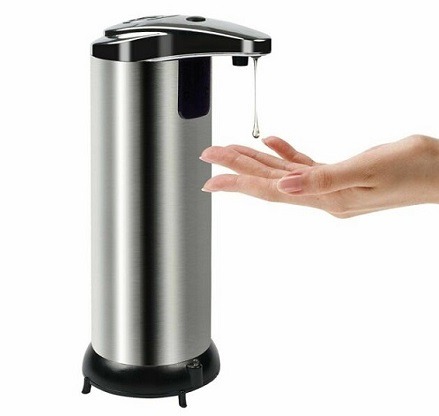
Ensure the extra food handling, kitchen and personal hygiene measures highlighted in this article are strictly applied by everyone in your home.
For clarity, everyone includes you, all your family members regardless of age and any support staff whether resident or not who enters your house and kitchen.
It is not helpful if you follow these tips religiously and the rest of your family members or your support staff do not. Your safety during this season is as strong as your weakest link.
Remember this is not the season to host guests for lunch or dinner. Loving your friends and loved ones during these difficult times, and especially those with underlying health conditions and your elderly parents/grandparents or other relatives means staying away from them.
Luckily, in this age when we are spoilt for choice on technology, they are only a phone call or video call away, so let technology serve you well during this pandemic season.
Conclusion:
COVID-19 has definitely changed the way we work, live and travel. It has also altered our approach to simple tasks like our home shopping and our approach to cleaning in our homes. It now requires us to be intentional in how we clean and to go an extra mile.
While some of the tips above may feel excessive or even bordering on paranoia, it may be safer to err on the side of more or less.
Extra caution in this season is particularly crucial if you live in a household with individuals who suffer from underlying conditions that compromise their immunity or the elderly.
Be careful to follow the steps we have outlined above on what to do if you need to go shopping and how to handle yourself and your shopping after coming back home.
These including washing your hands after you come back home and how to clean your groceries and packaging items before storage.
When you bring the groceries inside the house, it is important that you wipe them with an alcohol-based spray. The reason being, the COVID-19 virus usually lives for 24 hours on cardboard and plastic surfaces.
An option you can consider is online shopping. Having groceries brought to your doorsteps will help in minimizing the number of people visiting the stores and touching items. It also helps people adhere to social distancing guidelines.
Never go to the stores if you suspect that you could have contracted COVID-19 such as when you display symptoms like shortness of breath, cough or fever.
Also, avoid mixing with people if you are thinking that you’ve been exposed to coronavirus such as when a person you were in close contact with ends up testing positive.
In instances like this, you need to leave the house only for medical attention, after seeking guidance from the authorities on the best way to access treatment without exposing people on your way to the hospital.
If you are in quarantine, whether due to exposure before confirming your status or while receiving treatment and are short of supplies, make arrangements with a friend or somebody else to buy and deliver them outside your house.
Social distancing and hand-washing are more essential
In the end, what you clean and how regularly you clean it up is less significant than two other things: social distancing and washing hands.
Appropriate use of masks when in public places is also recommended, both for your protection and the protection of others.
As COVID-19 is mostly spread by aerosol droplets, it’s important that you steer clear of other people. The reason being, it will help protect not only you, but them and the community at large.
Disclaimer
This article contains general information on extra hygiene measures you can implement in your kitchen as precautionary measures against the COVID-19 pandemic. The article is for informational purposes only and should not be taken a medical advice given by a professional. The information contained in this article should not take the place of the advice offered by a physician or relevant institutions such as the World Health Organization (WHO), Centers for Disease Control (CDC) and other medical institutions. Applying the measures contained herein does not mean you cannot catch the virus. Please ensure you follow the guidance provided by the relevant international and national medical institutions and implement the safety measures provided, including testing. If you think you might have Covid-19, immediately seek help from the relevant institutions.
